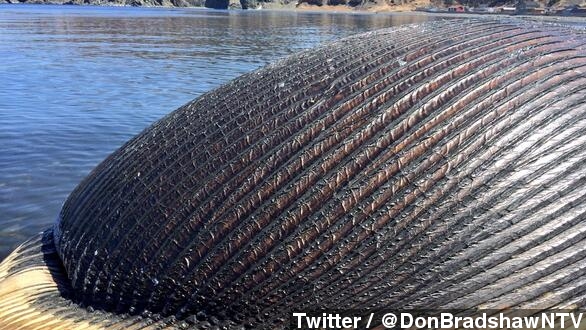It's been more than a week since a blue whale washed up near a small Canadian town, and the big questions have been "What are they going to do with it?" and "Is it going to explode?" Well, the residents can rest easy, because both of those questions seem to have been answered.
"Take the largest animal on earth, add in more than a week's worth of rot, and the fresh sea air becomes pretty foul." (Via CBC)
The bloated blue whale's carcass is one of several that washed up in Newfoundland last week. This one came ashore near a small town, festered, filled up with gas, and stunk up the entire area. (Via The Telegraph)
Since then, the locals, and, well, everyone following the story online have been waiting to see if the gas buildup would cause the 80-foot creature to blow apart. (Via Business Insider)
But good news for the tiny town of Trout River: they may not be soaked in whale guts after all.
According to a Canadian journalist, the swollen carcass has started shrinking. That means the pressure is no longer building. (Via Twitter / @DonBradshawNTV)
And what's more, the local residents won't have to figure out what to do with an animal two school busses long. Turns out the Royal Ontario Museum will gladly take it off their hands.
"We are very interested in being able to preserve them for science, to be able to have them in the mammal collections at the ROM, and being able to preserve tissue samples for toxicology analyses and genetic analyses." (Via CTV)
So that seems to be the end of the giant carcass's story. See, it wasn't such a whale of a problem after all.


